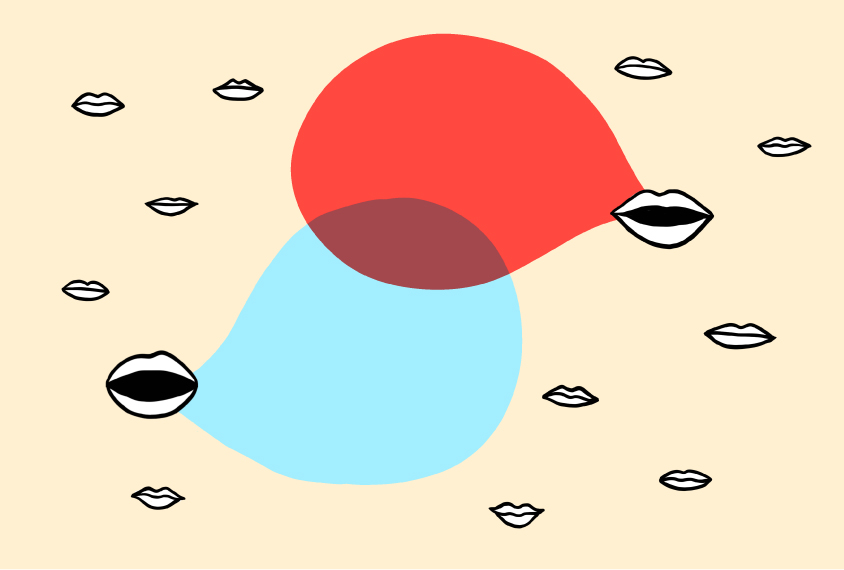Richard Bethlehem of Cambridge University shared a link to his team’s new study, “Genetic insights into human cortical organization and development through genome-wide analyses of 2,347 neuroimaging phenotypes,” published in Nature Genetics 17 August.
Our latest global effort (led by twitterles Varun Warrier from @psychiatry_ucam and @CambPsych ) to map the genetic architecture of the human ??? is now live! Massive thank you to all co-authors!! https://t.co/ZK5dGtl92a pic.twitter.com/FgxnfMr8OI
— Richard Bethlehem (@rai_bethlehem) August 17, 2023
Rafael Romero-Garcia of Cambridge University and Alain Dagher of McGill University replied to Bethlehem, who was featured in Spectrum’s 40-under-40 list of rising stars last year.
Another exciting piece of work led by Varun Warrier and @rai_bethlehem. GWAS on neuroimaging phenotypes. https://t.co/8iR3uPChSV
— Rafael Romero Garcia (@rafa_romero_gar) August 17, 2023
This is beautiful! A tremendous resource to try to understand the genetic underpinnings of normal and abnormal brain function. https://t.co/HIIZxSZNqV
— Alain Dagher (@alain_dagher) August 18, 2023
Peter Rupprecht of the University of Zurich gave an update on his team’s preprint, “Centripetal integration of past events by hippocampal astrocytes and its regulation by the locus coeruleus,” posted on bioRxiv 21 August.
Update to our preprint on calcium imaging of hippocampal astrocytes during behavior: Now with optogenetic activation of the locus coeruleus! A fantastic collaboration with the LC experts from the Bohacek lab @BohacekLab @SianDuss https://t.co/LnP0zMm1kx pic.twitter.com/zNSh0WJAMW
— Peter Rupprecht (@ptrrupprecht) August 22, 2023
Misha Teplitskiy of the University of Michigan shared “Perceptions of scientific research literature and strategies for reading papers depend on academic career stage,” published in PLOS ONE 28 December 2017.
The longer people are in academia, the more they realize that when reading papers it’s best to ignore Intro, Discussion etc. and just look at Methods and Resultshttps://t.co/EzQL7WI71Q pic.twitter.com/LGDy7DaVGk
— Science of Science (@MishaTeplitskiy) August 22, 2023
Kevin Mitchell of Trinity College Dublin was among the many who responded to Teplitskiy.
If you only read papers in your own field, this can be true. But when reading more widely, Intro and Discussion are my go-to sections… https://t.co/YVclsGYeMj
— Kevin Mitchell @WiringtheBrain@ mstdn .social (@WiringTheBrain) August 23, 2023
Camiel Mannens of the Karolinska Institutet described his team’s preprint, “Dynamics of chromatin accessibility during human first-trimester neurodevelopment,” posted on bioRxiv 21 August.
Holly Sutherland of the University of Edinburgh detailed a keynote lecture from the Scottish Autism Research Group 2023 conference.
Now Fergus Murray talking about #monotropism and wellbeing for the final keynote of #SARG2023
“If you want to help autistic people you need to understand autism; you want to understand autism you need to understand monotropism”
— Holly E.A. Sutherland (@heasutherland) August 22, 2023
Noah Sasson of the University of Texas at Dallas replied to Sutherland.
Great thread about monotropism in autism. I definitely think it’s a concept ripe for more empirical exploration. It has the potential to offer a lot of explanatory power… and not from a traditional deficit cognitive model. https://t.co/g0XXgZgzh1
— Noah Sasson (@Noahsasson) August 22, 2023
David Preece of Curtin University announced his team’s study, “Conceptualizing alexithymia,” published in Personality and Individual Differences 16 August.
There is ongoing debate about the definition of #alexithymia. In our new study, we show that constricted imaginal processes (difficulty daydreaming) is not part of alexithymia. Alexithymia is centrally about deficits in #emotion processing: https://t.co/jUM9xRu80h
— Dr. David Preece (@drdavidpreece) August 17, 2023
Chris Edwards of Griffith University shared his team’s study, “‘Most people have no idea what autism is’: Unpacking autism disclosure using social media analysis,” published in Autism 22 August.
New paper! Many of the disclosure experiences people posted about were quite disgusting… society needs to do better @AutisticProf @ObservatoryTeam @arcap_aus https://t.co/Ae5VFIZCqd
— Dr Chris Edwards (@DrChrisEd) August 23, 2023
Aishwarya Johnson of Queensland University of Technology shared a link to her team’s study, “Pharmacological inhibition of PTEN rescues dopaminergic neurons by attenuating apoptotic and neuroinflammatory signaling events,” published in the Journal of Neuroimmune Pharmacology 17 August.
Julie Simpson of the University of New Hampshire posted the article “Exclusive: Investigation prompts retraction of 17 studies from now-shuttered clinic,” published in Spectrum 14 July.
Exclusive: Investigation prompts retraction of 17 studies from now-shuttered clinic https://t.co/zLNr7xThiD via @Spectrum
— Julie Simpson (@ResearchEthics2) August 23, 2023
George Perry of the University of Texas at San Antonio linked to the article “Is excess brain fluid an early marker of autism?” published in Spectrum 17 August.
Is excess brain fluid an early marker of autism? https://t.co/X0e59RSzko via @Spectrum
— George Perry (@geoperry) August 18, 2023
Takei Yosuke of the University of Tsukuba posted the article “Father’s genes may drive sociability in male monkeys,” published in Spectrum 18 August.
Father’s genes may drive sociability in male monkeys https://t.co/XtP5HuAkTu @Spectrumより
— Takei Lab (@LabTakei) August 20, 2023
That’s it for this week’s Community Newsletter! If you have any suggestions for interesting social posts you saw in the autism research sphere, feel free to send an email to [email protected].






